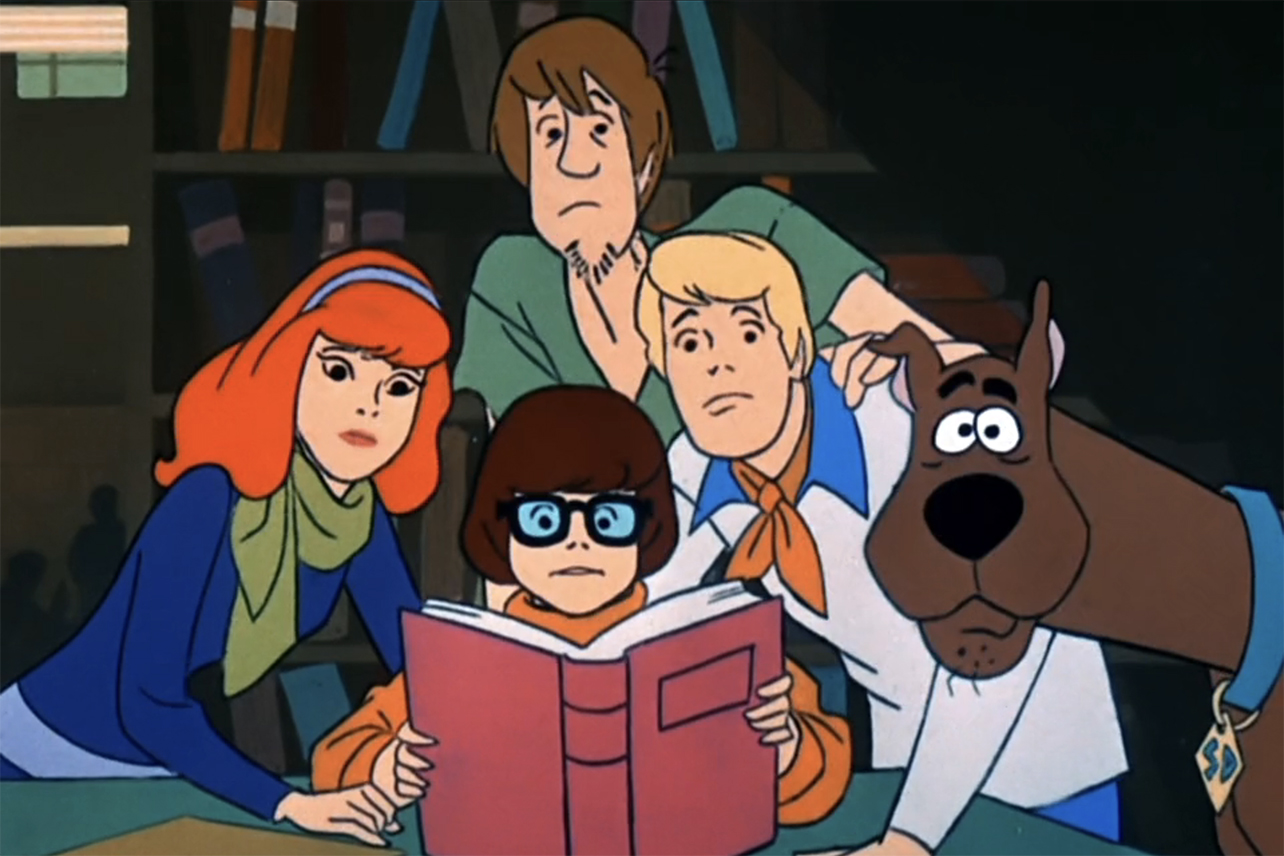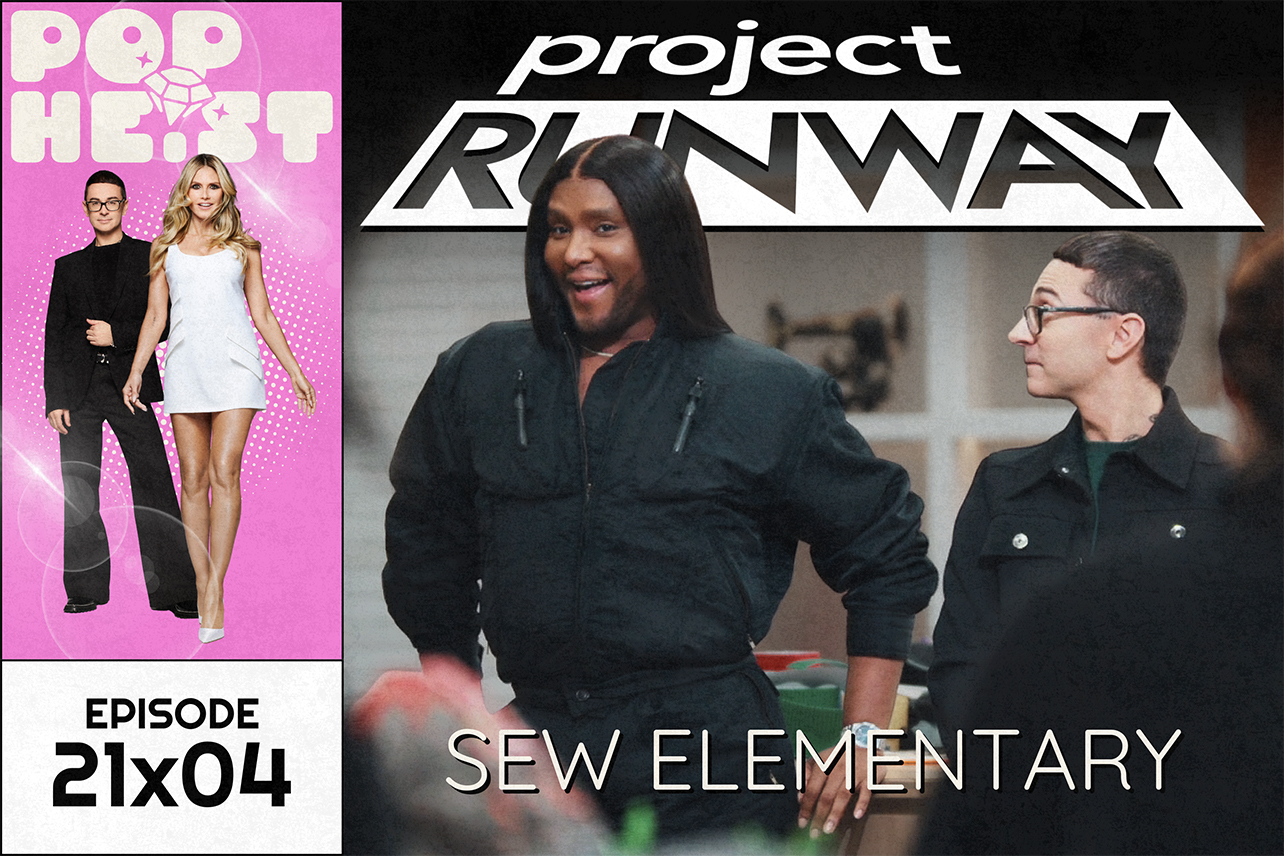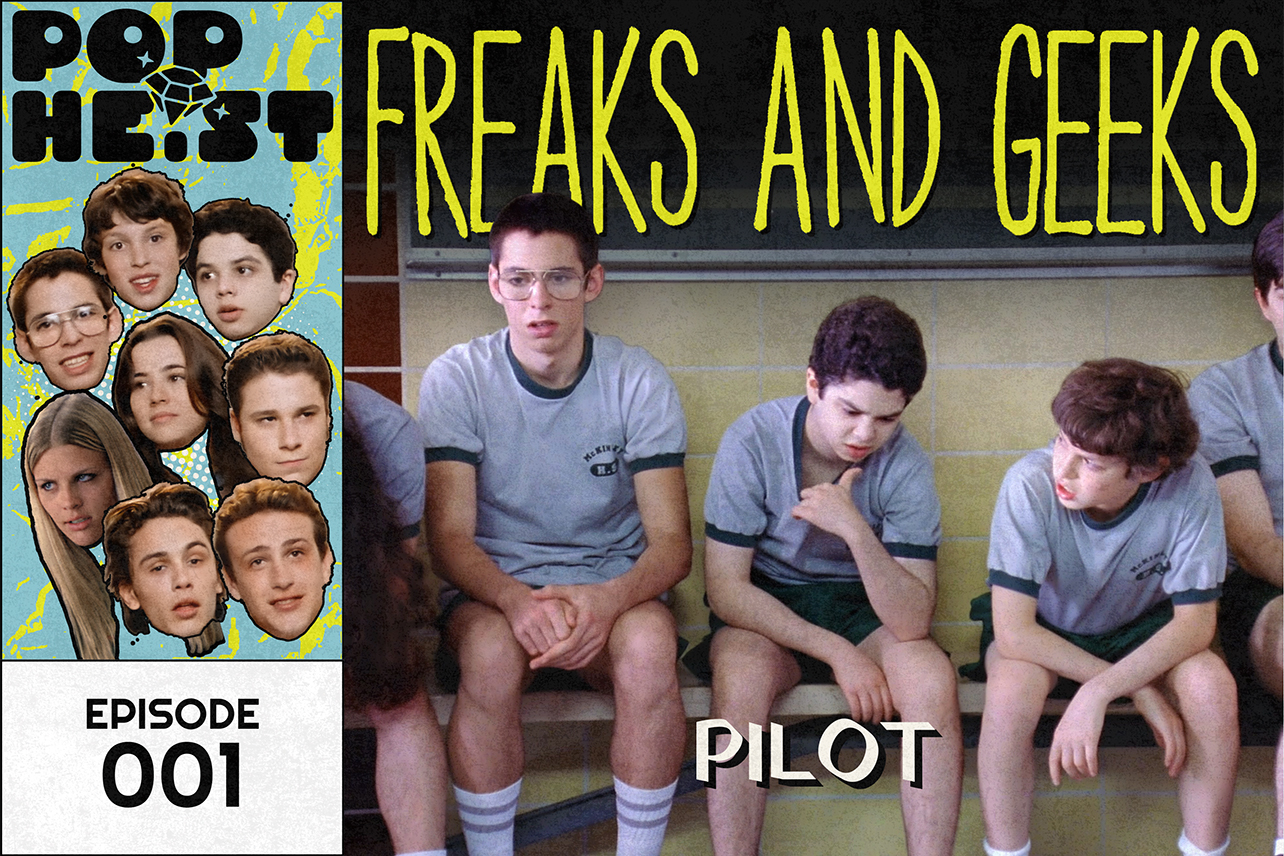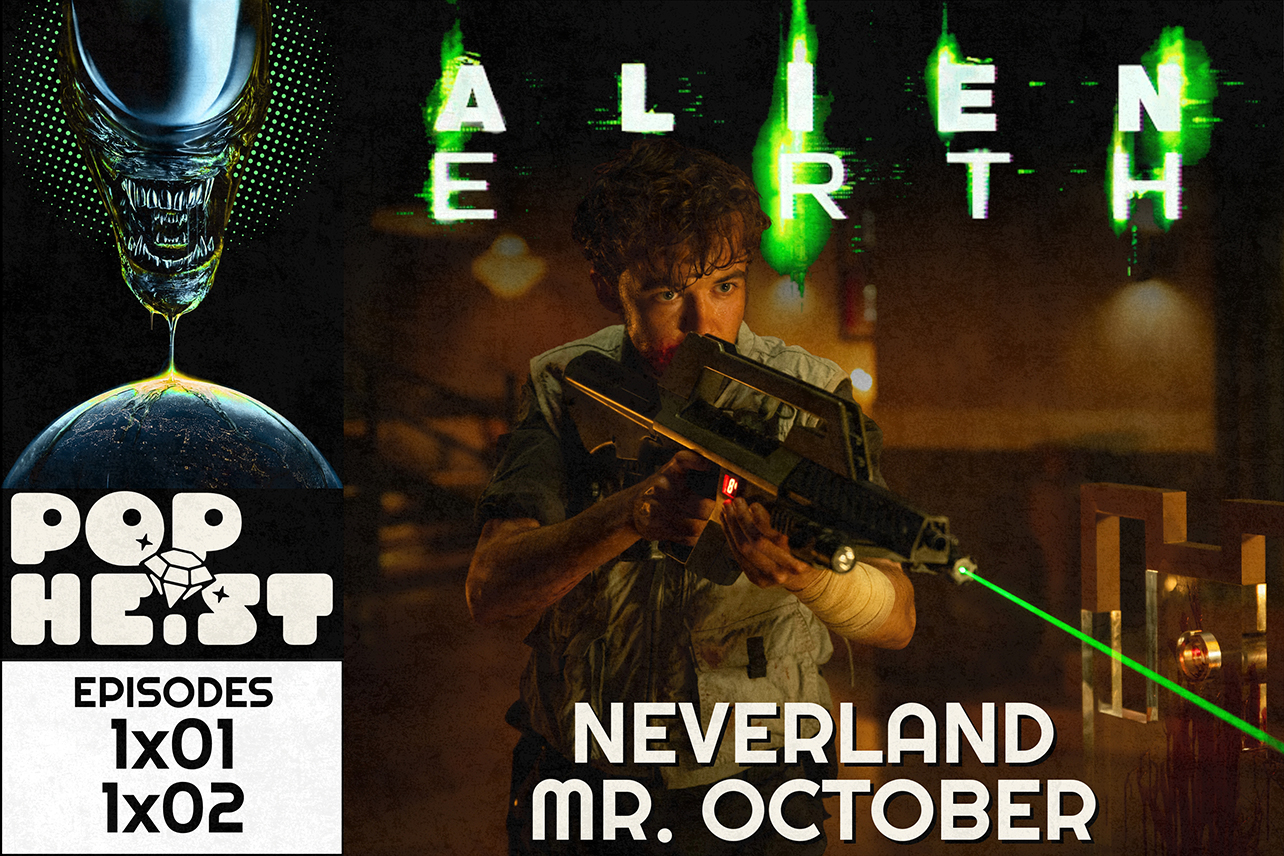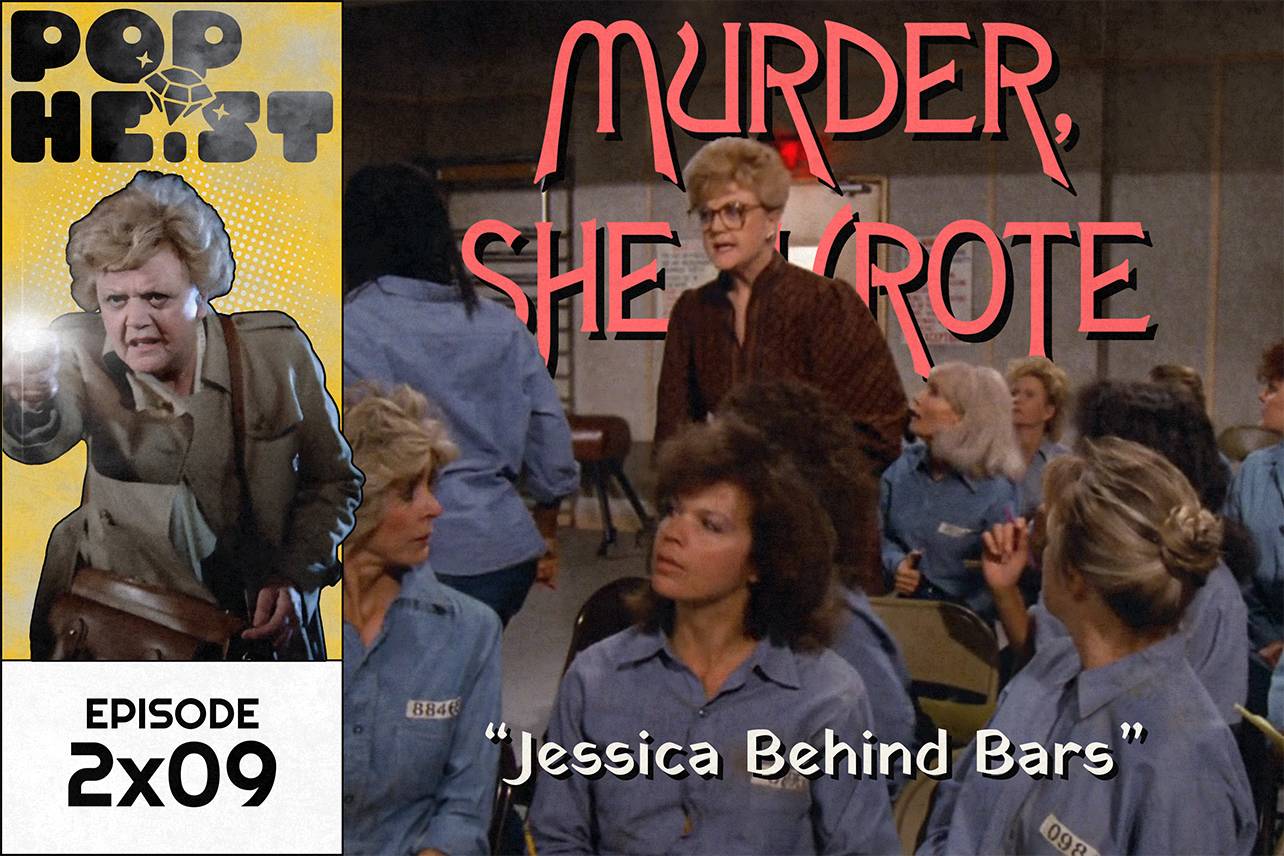I've loved mystery shows for as long as I can remember. I remember the stack of Scooby-Doo! chapter books I had as a kid. The titles always had some sort of alliteration like The Karate Caper, Fairground Phantom, and the iconic Groovy Ghost.
As I became a teenager, something about solving mysteries called to me. I "graduated" to Sherlock Holmes. I loved seeing Holmes deduce thoughtful insights from seemingly mundane details about people. He could tell if someone had a drinking problem by the scratches around their home's keyhole, for example. But something else stayed with me about Sir Arthur Conan Doyle's best-known detective: Scotland Yard was full of incompetent twats.
Sherlock was so good at his job that he did it for the love of the game, so to speak. He didn't need the money from solving case after case. The knowledge that he got it right was enough for our hero. This was neat for a time, but as I got older, I began to wonder what happens when police don't have a genius with poor social skills on standby.
If you came into this essay hoping for an insightful breakdown of over-policing, I regret to inform you that isn't happening. There are plenty of people making really fascinating things on the subject like Scalawag Magazine, F.D. Signifier, and Olayemi Olurin. I am here to make the case that Scooby-Doo did something that massively popular IPs like Sherlock and True Detective never could: effectively separated solving mysteries from the police and copaganda.
It got really difficult to enjoy certain shows as I got older, everything from Grimm to Brooklyn Nine-Nine. I liked them at one point, but as I learned more about abolition and the power of police unions and continued to have to exist in this country as a Black man, it got harder and harder to not see them as ads for the "cops are cool, actually" lobby, especially after the George Floyd and Breonna Taylor protests.
I never watched Cops intentionally, but I knew the theme song was that one Inner Circle song, so in true person-on-the-internet-with-a-take fashion, I'm going to talk about it anyway. Cops frames the titular cops as heroes, protecting communities by running after, tackling, and shakey-camming their way to the hearts of viewers. Even as a kid, I thought the format oversimplified criminal justice. It flattened the world into suspect = criminal = bad and, inversely, cop = hero = good. To grossly oversimplify abolition and the relationship between Black Americans and the police, this is lame.
An important distinction to draw is the difference between police and detectives, especially in media. Detectives look at evidence, follow leads, dust off cold cases, and solve crimes (occasionally mysteries). With the exception of private detectives, most detectives work directly with law enforcement. Police officers are typically associated as being in the field, taking people in, violating people's rights, and collecting ever-growing portions of city budgets. It's a square/rectangle situation; many detectives are police officers, but not all police officers are detectives.
Sherlock is one such police consultant. If up to him, he'd solve the case and leave the perpetrator tied up in the middle of the street until someone congratulated him on his deductions. But sadly, he must report them to the police, usually Tobias Gregson. The nature of Sherlock's cases kind of forces this interaction. My man is solving murders and kidnappings, actual crimes, so the police involvement makes sense.
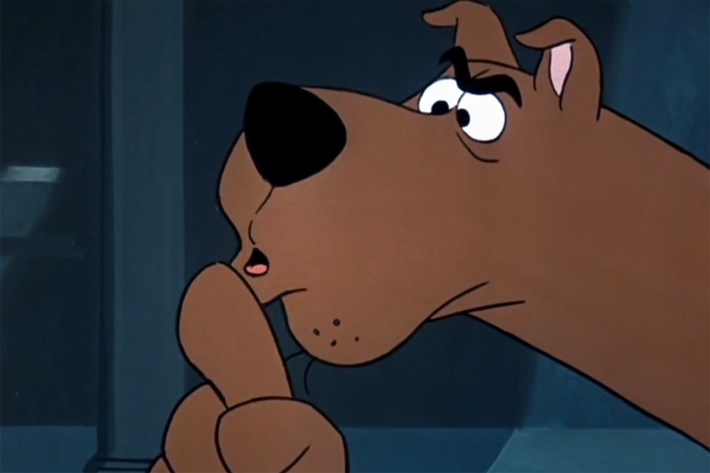
Cue a one Scoobert-Doo. This dog solves mysteries, not necessarily crimes. The people revealed by the end of every episode usually haven't harmed anyone — not unless you count those credited at the end of the 2002 live-action movie — and they certainly haven't killed anyone. Typical Scooby baddies (derogatory) use elaborate costumes and props to scare people from using/living/moving to places they want for themselves. So, they're more like annoying capitalists than actual villains. In this context, mysteries can be a stand-in for problems in society.
This might seem meticulous but stay with me. The fact that Scooby et al. aren't tasked with solving literal "this violates the law" crimes, but mysteries means that police involvement is kept to a minimum. Typically this means escorting the recently unmasked, but still otherwise in costume, big bad into a cop car just before the credits roll. This keeps Scooby-Doo from falling into the copaganda bucket. While the gang does all the work, much like Sherlock, their interactions with the police are significantly reduced.
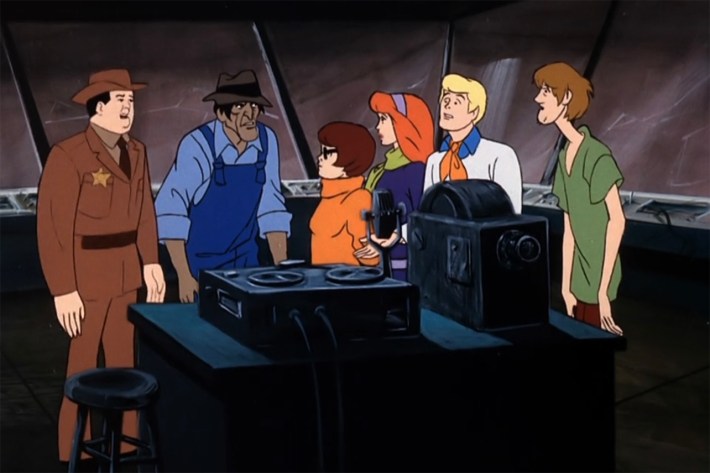
Scooby-Doo is not about a group of teenagers and their talking dog stopping costumed weirdos. It's asking audiences to imagine what kinds of problems we can solve if we work together
When you factor in the meddling kids angle, where Scooby and the gang are disregarded by most of the adults they encounter, it makes their routine mystery solving all the more impressive. An extremely optimistic and abolitionist reading of this information leads me to believe that Scooby-Doo is not about a group of teenagers and their talking dog stopping costumed weirdos. It's asking audiences to imagine what kinds of problems we can solve if we work together, independent of the existing structures that routinely fail us and siphon valuable resources in the process.
Take Chicago for example: Their CARE program took police out of their mental health response programs in certain areas, instead staffing them with health department employees. The results have been promising. Since 2021, CARE teams have responded to more than 1,500 calls. The calls have resulted in zero arrests and use of force in less than 0.1% of incidents, according to the city news release.
I don't believe we need to put a rush on genetic testing so dogs might someday save our criminal justice system, but I think Scooby-Doo offers us a chance to examine what works and what doesn't in today's society. And while the sandwich of systemic problems seems impossibly tall, that never stopped Scooby and Shaggy from putting it down. Who knows what kinds of solutions people can come up with when we work together? With that said, I think we should do what OG grassroots organizer Fred Jones would do — split up and look for some meddling folks in our communities to problem-solve with.
This essay was originally published via Jonathan's newsletter. You can read more here.
